Do you want to know what is content marketing, and what are some of the best content marketing tools for beginners? You’re in the right place.
Content marketing is a strategic approach focused on creating, publishing, and distributing valuable, relevant, and consistent content to attract and engage a clearly defined audience.
Unlike traditional advertising, content marketing prioritizes useful information that addresses specific needs or interests. This method includes various forms, such as blogs, videos, social media posts, podcasts, and e-books, each tailored to educate or entertain rather than directly promote.
RELATED
- How to Create Content Marketing Calendar: Comprehensive Guide
- Content Marketing Mistakes to Avoid: A Comprehensive Guide
- How to Start a WordPress Blog – Step by Step
- How to Start a Free Blogger Blog – Step by Step
- How to Optimize for “Near Me” Searches for Local Services
- How to Optimize Your Blog for Voice Search
- Blogging Automation Tips for Beginners
The ultimate goal of content marketing is to build strong customer relationships, establish brand authority, and drive profitable customer actions by positioning the brand as a helpful resource.
When it comes to getting started with content marketing, using the right tools can make a significant difference in efficiency, consistency, and impact. Below are some of the best content marketing tools for beginners, categorized by key functions essential to effective content marketing.
- Content Research Tools
- Content Planning and Management Tools
- Content Creation Tools
- SEO Optimization Tools
- Content Distribution Tools
- Analytics and Performance Tracking Tools
- Content Repurposing Tools
|| Looking for amazing responsive themes starting from $2? Find Here. Looking for a fast-performance web-hosting? Get Here.
01. Content Research Tools
Content research tools are a vital component of any successful content marketing strategy. These powerful software applications and online platforms provide content creators with a wealth of data-driven insights.
At the most basic level, content research tools allow users to analyze keyword search trends, identify high-performing topics and titles, and uncover content gaps within a given industry or niche.
More advanced tools can also facilitate competitive analysis, tracking how rival brands and influencers are engaging their target audiences through content.
01. BuzzSumo
BuzzSumo helps identify trending topics, top-performing content, and influencers in your niche.
It gives beginners insights into what content resonates most within their target market, allowing for data-driven content creation. The key features include content insights, trend discovery, influencer identification, and competitor analysis.
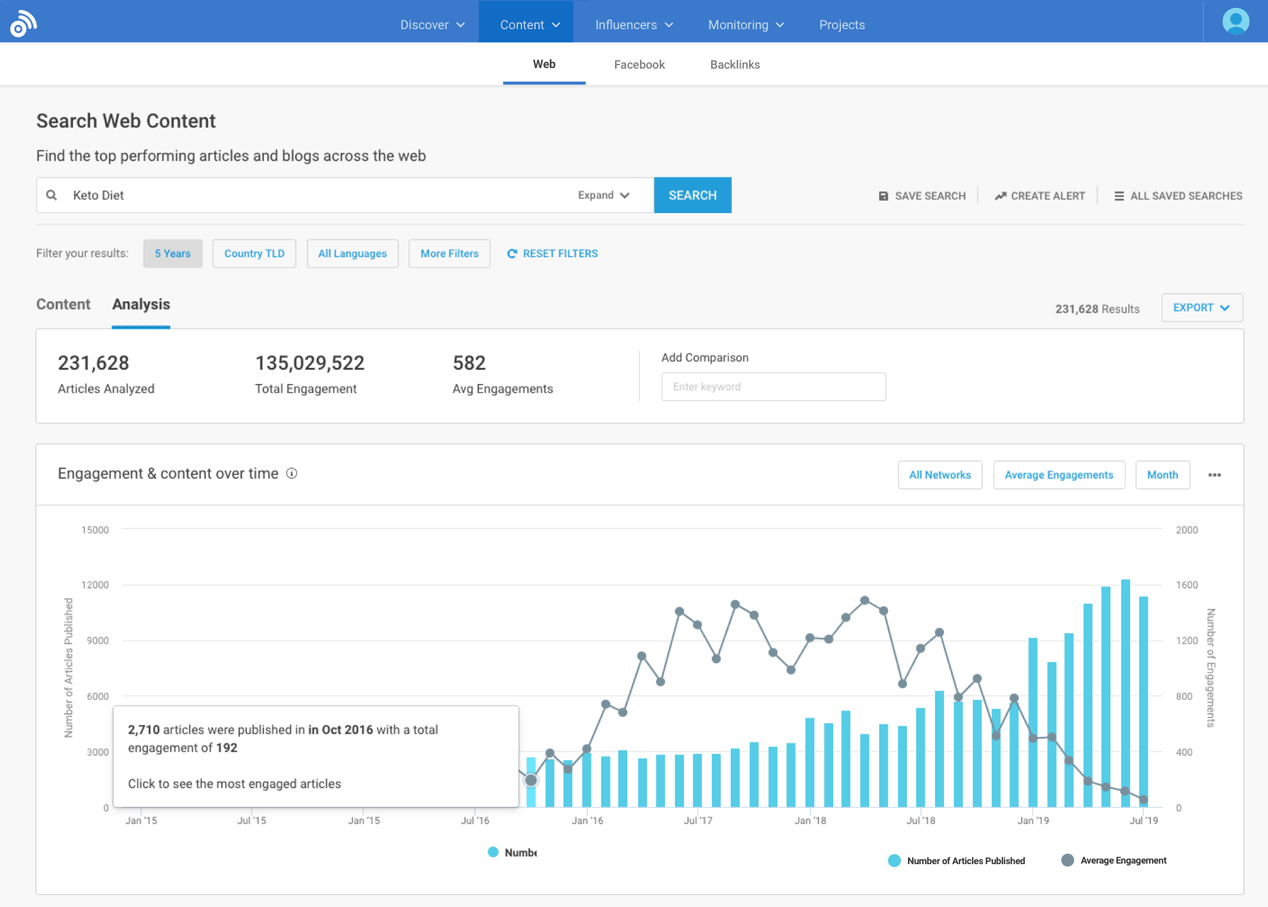
02. AnswerThePublic
AnswerThePublic visualizes popular search questions and phrases around a keyword.
It helps uncover popular questions and topics people are searching for, which can spark content ideas. The key features include keyword visualization, trending questions, and topic inspiration.
Here I have searched for the keywords “cashmere sweater”.
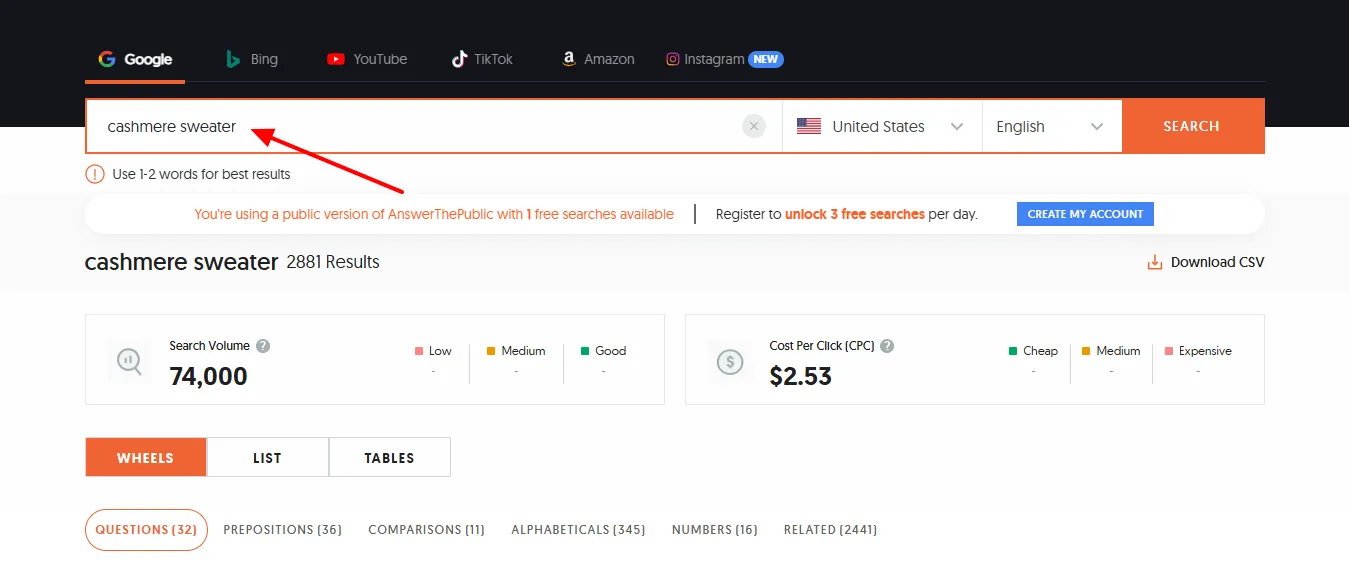
It shows search volume, cost per click, popular questions around the searched keyword(s) on different platforms, and much more.
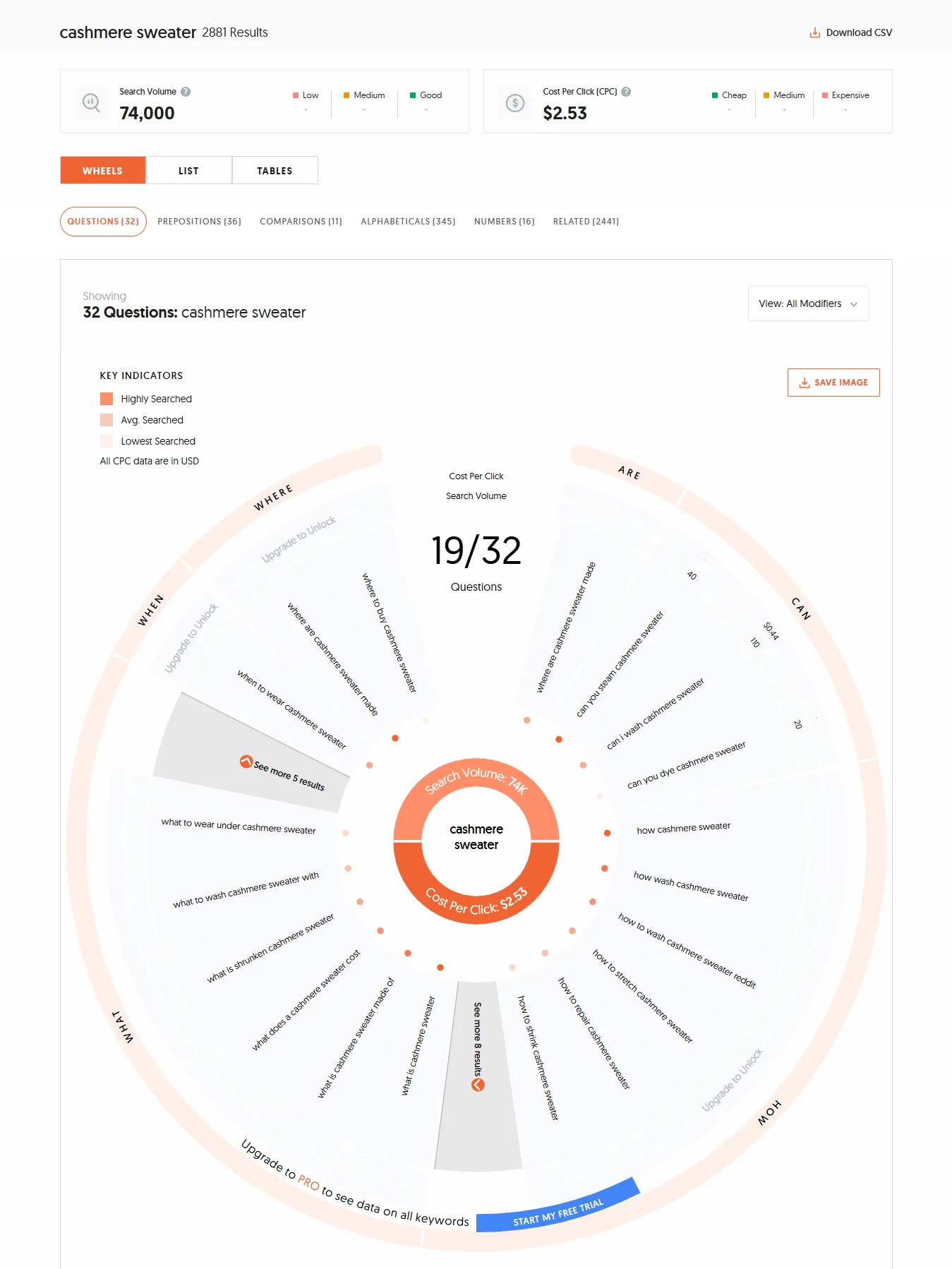
02. Content Planning and Management Tools
Content planning and management tools play a crucial role in content marketing by streamlining the creation, organization, and distribution of content across various platforms. These tools help marketers develop structured content calendars, collaborate with team members, and ensure content aligns with brand goals and audience needs.
By centralizing content workflows, they enhance productivity, allowing teams to track progress, analyze performance, and adjust strategies in real-time.
With features like scheduling, SEO optimization, and analytics, content management tools empower marketers to deliver consistent, high-quality content that engages audiences, drives brand awareness, and supports business growth.
01. Trello
Trello is a project management tool that organizes content tasks into boards, lists, and cards.
It is an easy-to-use tool for beginners who need to organize content calendars, track progress, and collaborate with others. The key features include content calendar creation, task assignment, project timelines, and team collaboration.
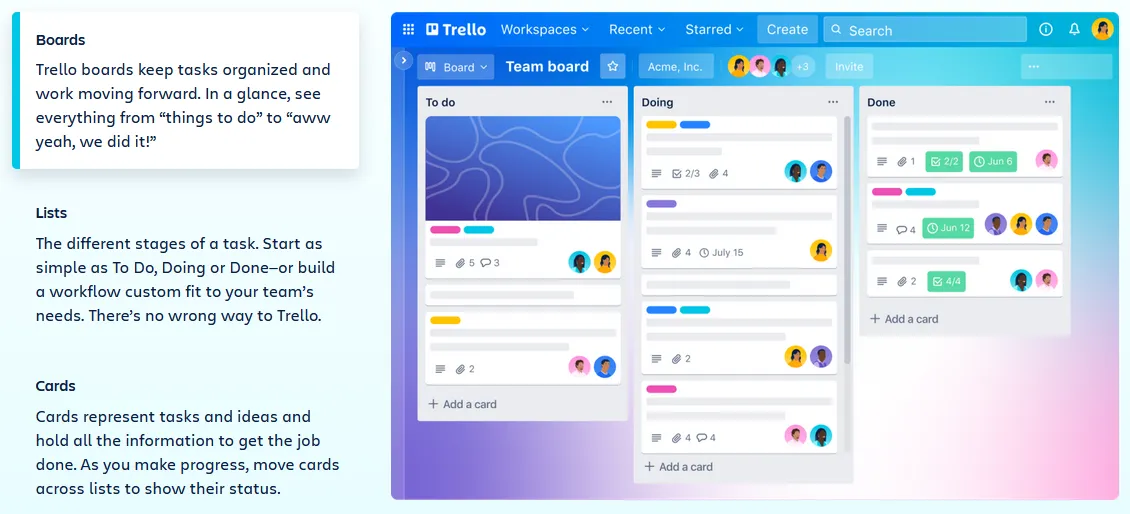
02. Notion
Notion is a versatile workspace tool that combines note-taking, task management, and team collaboration.
Its flexibility allows beginners to create customized content planning templates, store research, and track deadlines. The key features include customizable templates, task management, and real-time collaboration.
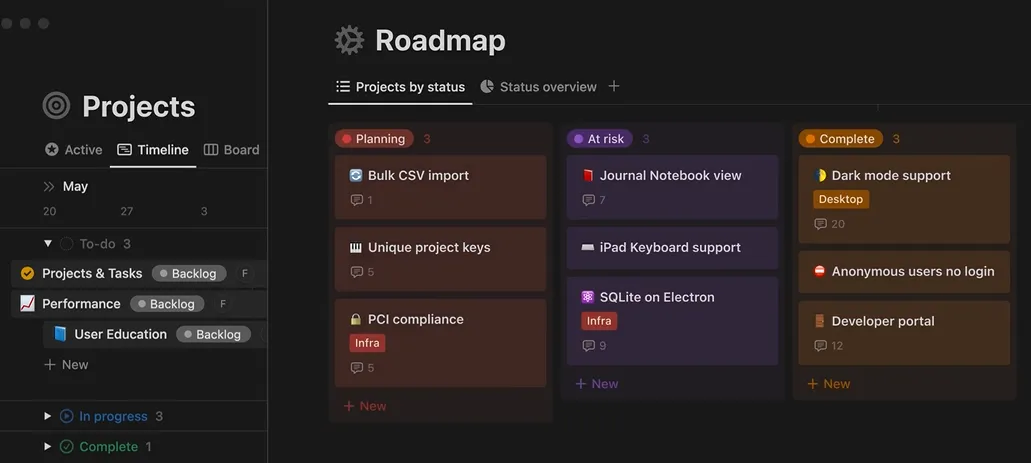
03. Content Creation Tools
The use of content creation tools has become an integral component of modern content marketing strategies. These specialized software applications and platforms empower marketers to craft and refine a wide range of digital content assets with greater efficiency and creative control.
From graphic design suites that enable the seamless production of eye-catching visuals, to video editing tools that simplify the process of transforming raw footage into polished, professional-grade videos, the array of content creation solutions available today is truly impressive.
01. Canva
Canva is an easy-to-use graphic design platform for creating visuals.
It makes it easy for beginners to create professional-looking visuals for blogs, social media, and marketing without design experience. The key features include templates for social media posts, infographics, presentations, an easy drag-and-drop interface, and many more.
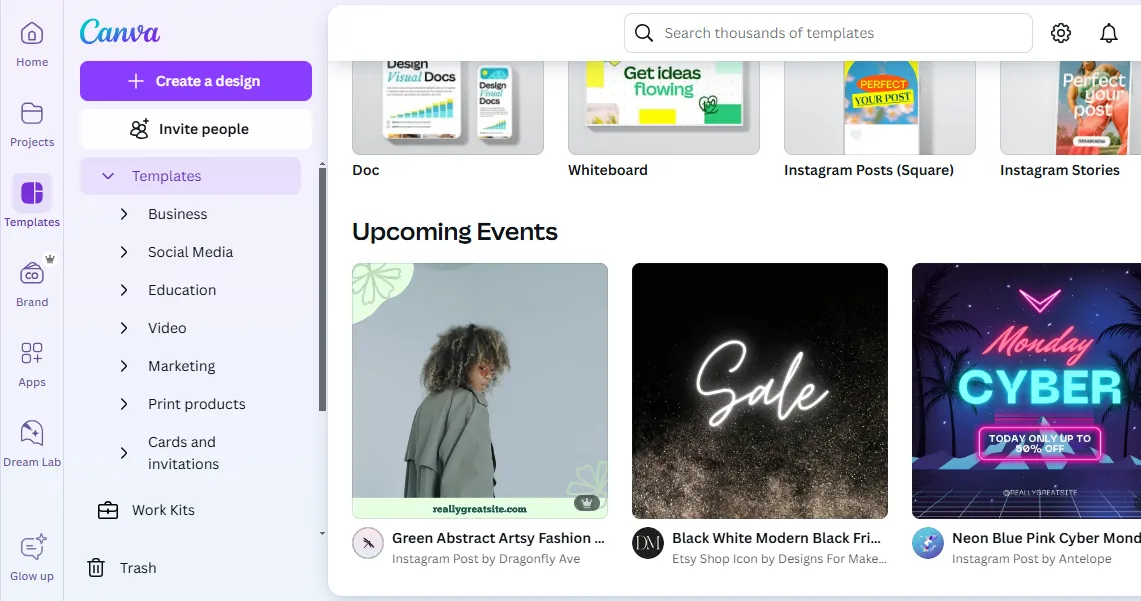
02. Grammarly
Grammarly is a grammar and style checker that enhances readability and tone.
It ensures content is polished and error-free, which builds credibility with readers. The key features of Grammarly include grammar and spell check, tone adjustment, and style suggestions.
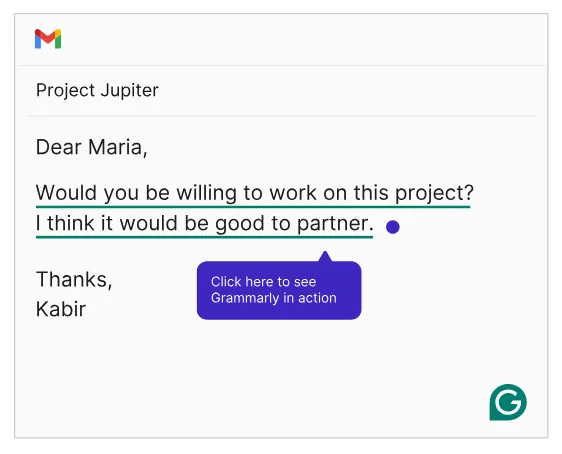
04. SEO Optimization Tools
The utilization of SEO optimization tools is a crucial component of any comprehensive content marketing strategy.
These powerful software applications provide content creators and digital marketers with invaluable data and insights to help them craft online content that is not only engaging and informative, but also highly discoverable by target audiences through search engine optimization.
Related: Understand On-Page SEO and Off-Page SEO
01. Yoast SEO (WordPress Plugin)
Yoast is a free WordPress plugin that guides users to optimize their content for search engines. Best Alternate to Yoast: RankMath SEO Plugin.
Its easy-to-understand on-page suggestions are perfect for beginners who need to improve content SEO. The key features of Yoast SEO include keyword optimization, readability analysis, and SEO score tracking.
Related: How to Install & Set Up Yoast SEO Configuration
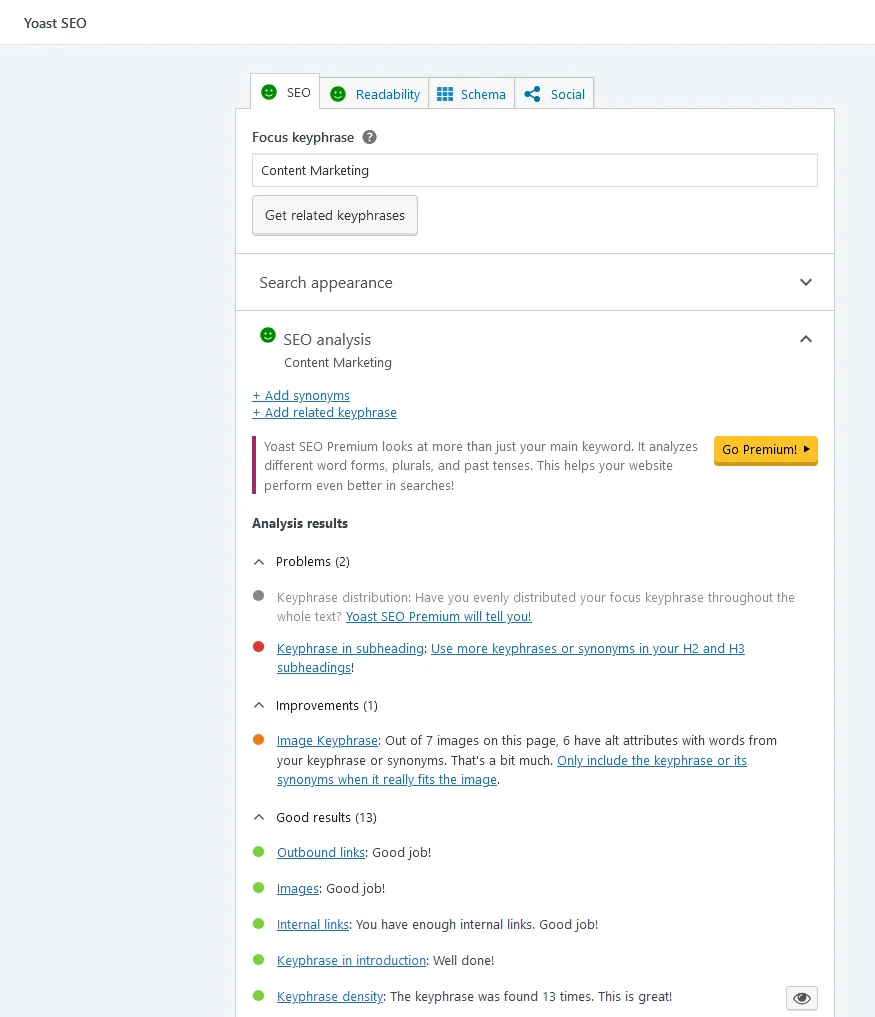
02. Google Keyword Planner
Google Keyword Planner helps find relevant keywords and understand their search volumes.
It gives beginners the data they need to understand what keywords to target for better search visibility. The key features include keyword suggestions, search volume insights, and competition analysis.
Related: How to Sign Up & Use Free Google Keyword Planner
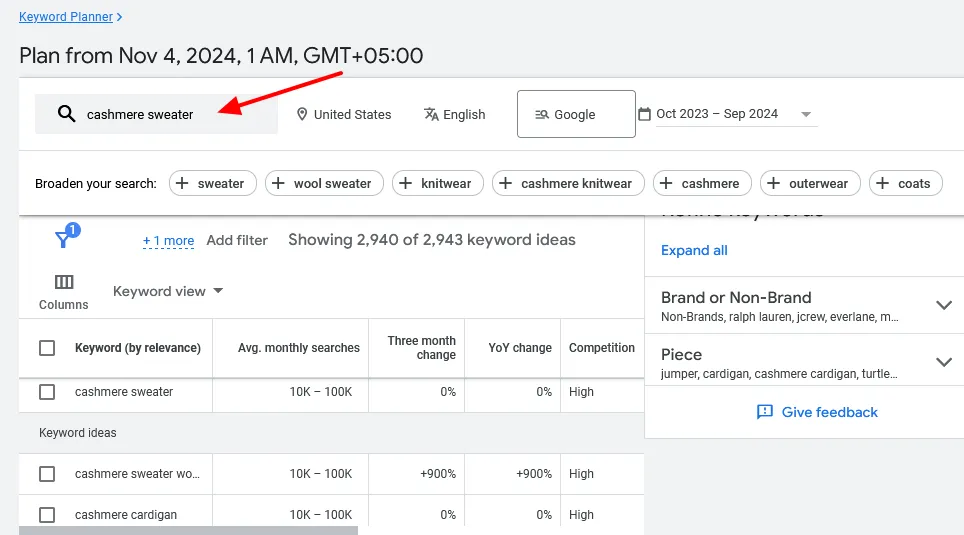
05. Content Distribution Tools
The Content Distribution Tools enable businesses to widely disseminate their carefully crafted content, ensuring it reaches the right audience at the optimal time. By leveraging the power of content distribution, you can amplify the impact of their content efforts, driving greater visibility, engagement, and ultimately, conversion.
Through integrations with social media channels, email marketing platforms, search engine optimization (SEO) tools, and more, content distribution tools provide a comprehensive solution for managing the complex journey of content from creation to consumption.
01. Buffer
Buffer schedules and automates social media posts across platforms.
It helps beginners distribute content consistently across multiple channels, which is essential for building an audience. The key features of Buffer include scheduling, analytics, and multi-platform posting.
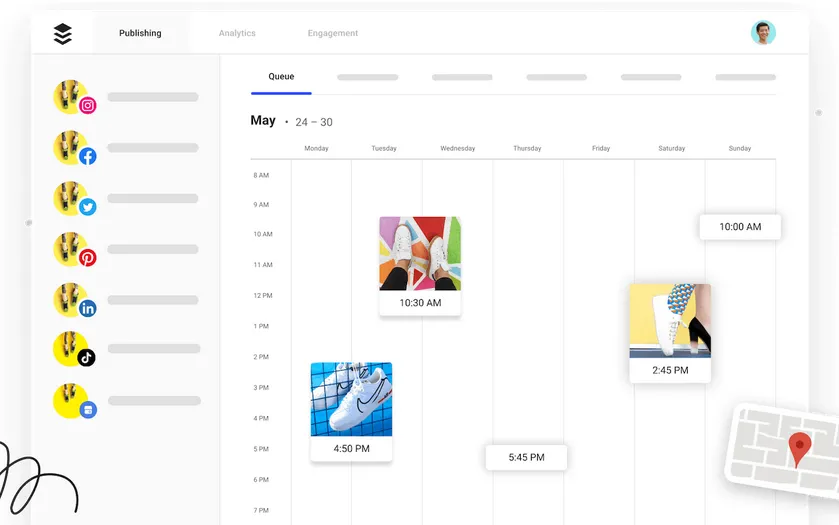
02. Mailchimp
Mailchimp is a beginner-friendly email marketing tool for creating and sending email campaigns.
Its drag-and-drop email builder and analytics make it easy for beginners to start email marketing. The key features include email design, audience segmentation, A/B testing, and analytics.
06. Analytics and Performance Tracking Tools
The use of analytics and performance-tracking tools has become an integral part of modern content marketing strategies. These powerful tools provide invaluable data and insights that allow you to make informed decisions and optimize the content for maximum impact.
By monitoring metrics such as website traffic, engagement rates, conversion funnels, and audience demographics, content creators can gain a deep understanding of how their target market is interacting with and responding to their material.
01. Google Analytics 4
Google Analytics 4 tracks website traffic and audience behavior and shows statistics in the form of reports, charts, graphs, etc, for SEO (search engine optimization) and marketing purposes.
It provides beginners with in-depth insights into content performance, helping them understand what works and where to improve. The key features of Google Analytics 4 include traffic sources, audience demographics, and content performance reports.
Related: How To Sign Up & Link Website With Google Analytics 4 (GA4)
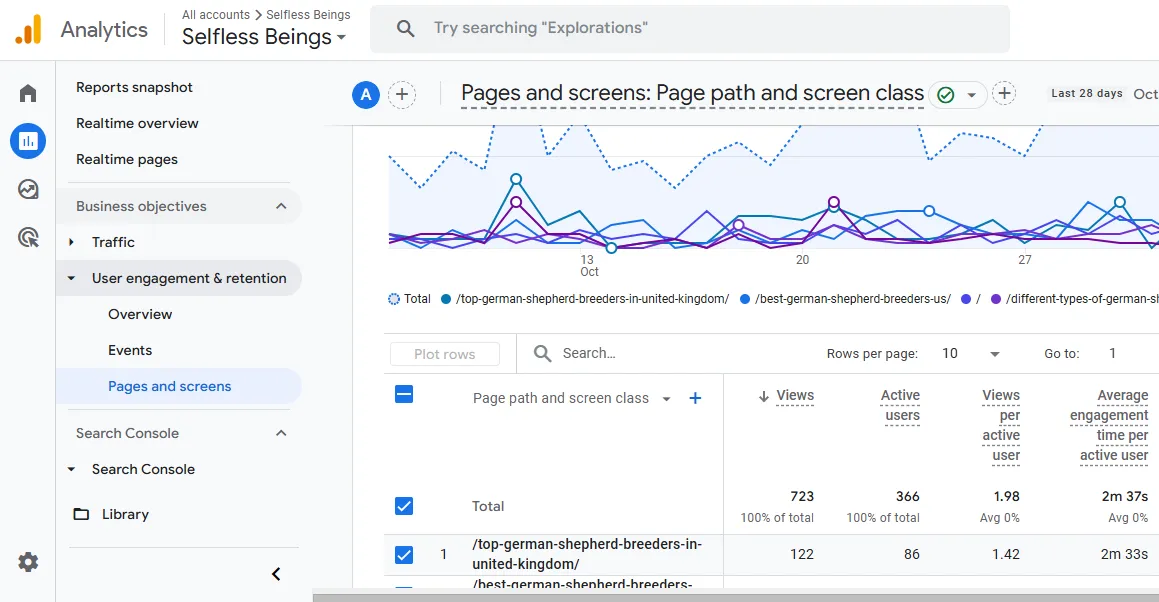
02. Hotjar
Hotjar visualizes user behavior on your website through heatmaps and recordings.
It helps beginners understand how visitors interact with their content, which can highlight areas for improvement. The key features include heatmaps, user session recordings, and feedback tools.
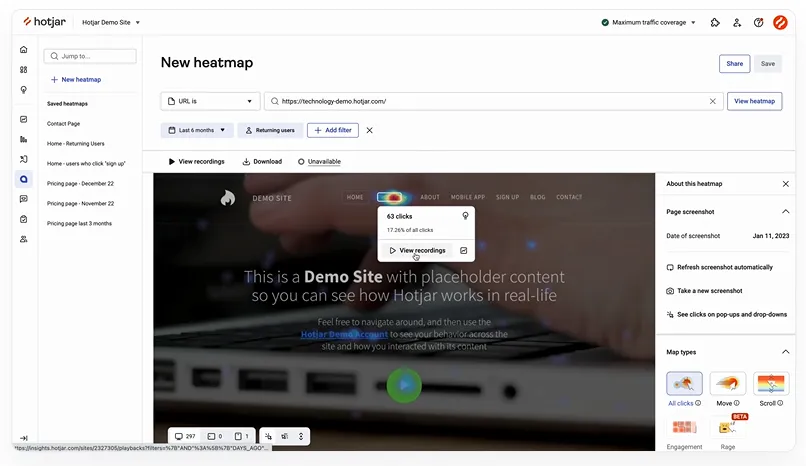
07. Content Repurposing Tools
Content repurposing tools allow you to efficiently transform existing content assets into a diverse array of new formats, maximizing the value and reach of your brand’s messaging.
By leveraging tools that automate the process of repurposing blogs into social media posts, converting videos into podcasts, or generating complementary infographics, marketers can exponentially amplify their content’s impact.
01. Lumen5
Lumen5 turns blog posts and articles into videos.
It is one of the most engaging content forms, and Lumen5 makes it easy for beginners to repurpose written content into shareable videos. The key features of Lumen5 include AI-powered video creation, a drag-and-drop editor, and video templates.

02. Otter.ai
Otter.ai transcribes audio to text, making it easier to repurpose content.
For beginners who want to repurpose podcasts or webinars, Otter.ai provides accurate transcriptions for written content. The key features of Otter.ai include automated transcription, speaker identification, and integration with video platforms.
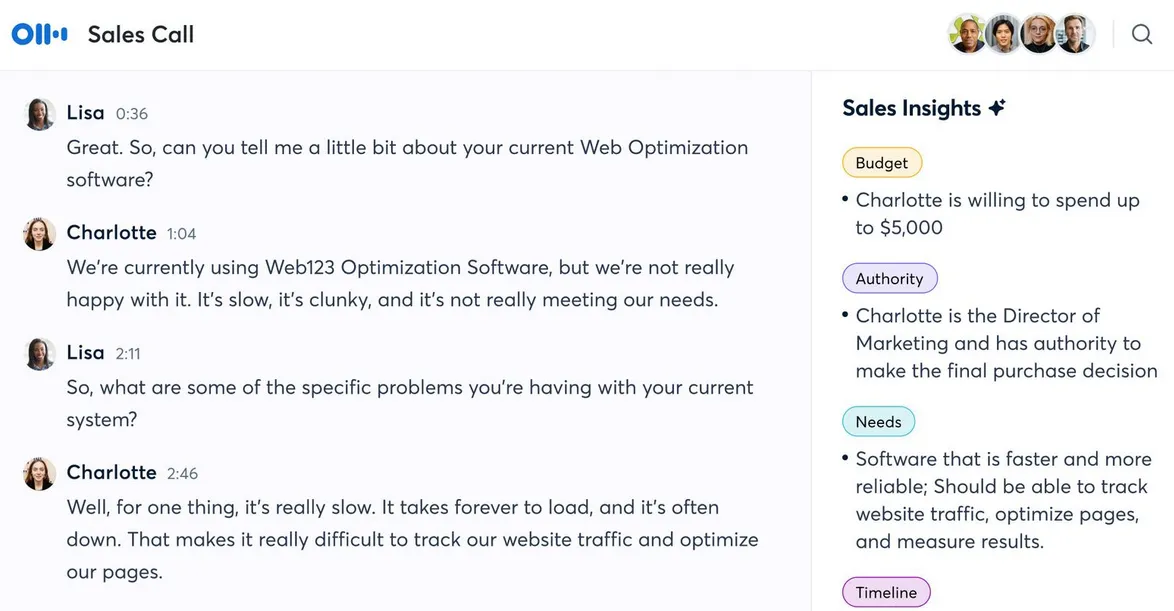
Final Thoughts
Starting with a few essential tools in each category allows beginners to cover the critical aspects of content marketing i.e. research, creation, optimization, and distribution. As your skills grow, you can explore more advanced tools, but these beginner-friendly options provide a strong foundation to start building your audience effectively.
If you like this post then don’t forget to share with other people. Share your feedback in the comments section below.
Also Read
- Why Does it Take So Long to Get Traffic on New Blogs, Even With Good Content, and SEO?
- Analytics Advantage: Driving Social Media Success with Data Insights
- Mastering the Art of Targeted Advertising on Social Media Platforms
- A Comprehensive Guide for Building a Successful Instagram Profile
- 9 Proven Tips to Optimize Instagram Store for More Customers
- Local SEO Tips for Photographers: Boost Visibility & Attract Clients
- Using Google My Business for Small Businesses: Complete Guide
- Voice Search Trends 2025 and Beyond


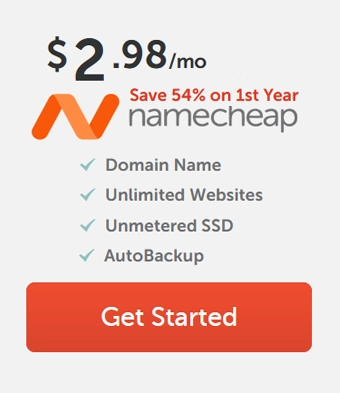


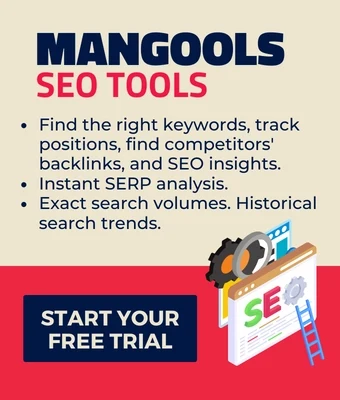
Leave a Reply